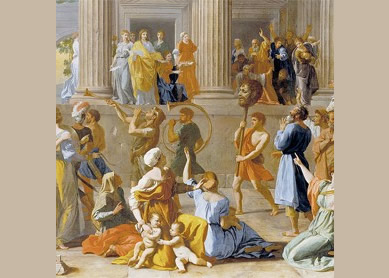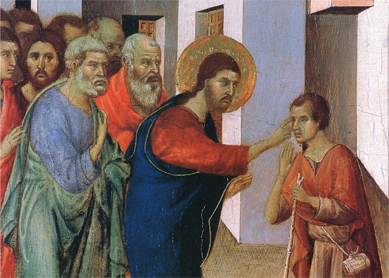Though we now regard censuses and counting as unremarkable, they were considered sacred and dangerous in the Hebrew Bible.
When and why were censuses conducted?
The counting of people or groups—that is, a census—occurs throughout the biblical text and serves a variety of purposes. There were counts of the entire population (2Sam 24; 1Chr 21), of only the priestly groups (Num 4:1-3, Num 4:21-23), and of males eligible for the military (Num 1:2-46). Censuses were used for general assessment of the population, such as to count the number of Jacob’s family members who went to Egypt (Gen 46:26-27; Exod 1:1-7), of the Israelites who left Egypt (Num 1:2), and of the exiles who returned to Judea (Ezra 2:1-67). Censuses were also utilized for military and labor conscription (Num 1:3-46; 2Sam 24:9; 1Chr 21:1-6), cultic purposes (Num 3:15, Num 4:29-30), taxation (Exod 30:13-16; Exod 38:24-26), and property distribution (Num 26:3-56).
What did counting symbolize, and why did David’s census lead to a plague in 2Sam 24?
Censuses were, at times, ordered by God and largely benign (Num 1:2-46; Num 4:1-3, Num 4:21-23, Num 26:2-4). However, 2Sam 24 describes an instance in which a census, initiated by God and undertaken by David, leads to a divinely induced plague. The occurrence of a plague in response to David’s census is therefore usually explained as punishment for an unstated misdeed on the part of the monarch. However, the act of counting people may simply have been seen as magical and dangerous. Thus Num 1:49 commands Moses not to number the Levites, and Exod 30:12 states that every Israelite counted provide a ransom in order to prevent a plague. Indeed, the mysterious connection between plagues and censuses (Num 26:1-2; Exod 30:12) suggests that counting had larger symbolic resonance.
According to Abraham Seidenberg, censuses likely originated in cultic settings and religious ceremonies as a way to call participants onto the scene. It might have been utilized in rituals that celebrated and mimicked God’s creation and ordering of the world. Counting people, moreover, was linked not just to creation and the beginning of existence, but also to the end of existence or death. Therefore, counting people was viewed as ominous and dangerous.
Since it was associated with creation, life, and death, counting symbolized God’s mastery, power, and sovereignty over the created universe (Isa 40:26; Ps 147:4, Ps 147:15-20). Counting therefore was seen as the unique purview of God. This symbolism might explain why God, who is said to be angry before the census (1Sam 24:1), incites David to do the very thing for which he is punished. Likely, God is already angry over something else that, like counting, infringes upon his royal position, such as Israel’s demand for a human king (1Sam 8). God therefore entices David to violate God’s royal prerogatives again by conducting a census so that God can punish David and the people with a plague. In so doing, God can reassert his identity as the ultimate counter and true sovereign of Israel.




